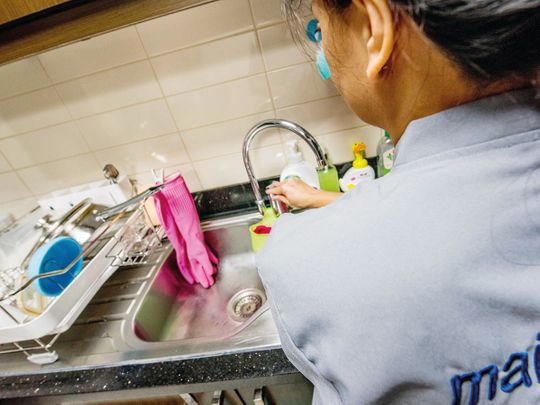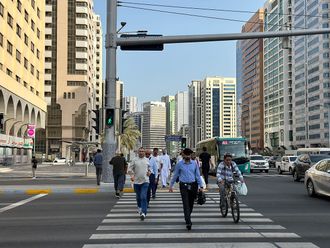
Dubai: During public holidays that are announced by the UAE government, what are the rules to be followed when it comes to domestic workers in the UAE. Whether it is your housekeeper, your child's nanny, or any other domestic worker, are they legally entitled to get days off on public holidays?
Gulf News raised the query with Jihene Arfaoui, a legal adviser based in Dubai, who spoke about the provisions in Federal Law No. 9 of 2022 concerning Domestic Workers as well as Cabinet Decision No. 106 of 2022 regarding the Executive Regulations of Federal Decree-Law No. 9 of 2022. The law establishes the principle of informed consent, ensuring that workers are aware of the terms of the contract, nature of work, the workplace, the remuneration and the period of daily and weekly rest as set out by the executive regulations and before they cross their national borders.
- Working during public holidays? Know your rights as per the UAE Labour Law
- Eid Al Adha 2023 in Abu Dhabi: Fireworks, concerts, celebrations and more
- UAE: Police forces in Dubai, Sharjah, Ras Al Khaimah draw up security plans for Eid Al Adha 2023
- Free parking, bus and metro timings in UAE; Fire breaks out in Ajman residential building: Top trending stories this morning, June 27, 2023
1. Housemaid/servant
2. Sailor
3. Guard
4. Shepherd
5. Jockey
6. Tamer
7. Falcon caretaker
8. Worker
9. Housekeeper
10. Cook
11. Nanny/babysitter
12. Farm worker/grower
13. Gardener
14. Personal trainer/coach
15. Private tutor
16. Home nurse
17. Personal assistant
18. Private agricultural engineer
19. Personal/family driver.
Leaves for domestic workers
Articles 9 and 10 of the law cover the regulations surrounding the working hours, weekly paid rest days, yearly vacation days as well as medical or sick leaves for the worker. As per these articles, domestic workers are entitled to:
1. One day of paid rest per week.
2. 12 hours of rest per day, including eight hours consecutive rest.
3. 30 days paid vacation per year.
4. 30 days medical leave per year.
With reference to the weekly paid rest day, Arfaoui said that the law and its executive regulations state that if the worker is required to work during his or her weekly rest day, he or she shall be entitled to a replacement rest day or shall receive cash payment for that day.
"However, public holidays are not determined in the Law or by the Ministry of Human Resources and Emiratisation’s (MOHRE) decision. So, we think that if the holidays are not determined by law or Ministry decision – either through a specific law or through a decision related to domestic workers by MOHRE, or by agreement, the employer is not obliged to give these leave days to his or her employee,” Arfaoui said.

public holidays are not determined in the Law or by the Ministry of Human Resources and Emiratisation’s (MOHRE) decision. [However], if the worker's weekly rest coincides with the Eid holiday and the employer chooses to require the worker to work on the holiday, the employee must be granted an alternative day off for rest or be paid cash in lieu of that day.
"Therefore, if the worker's weekly rest coincides with the Eid holiday and the employer chooses to require the worker to work on the holiday, the employee must be granted an alternative day off for rest or be paid cash in lieu of that day. The domestic worker may not be required to work for more than two consecutive days of rest in any two weeks, unless otherwise agreed upon," she added.










